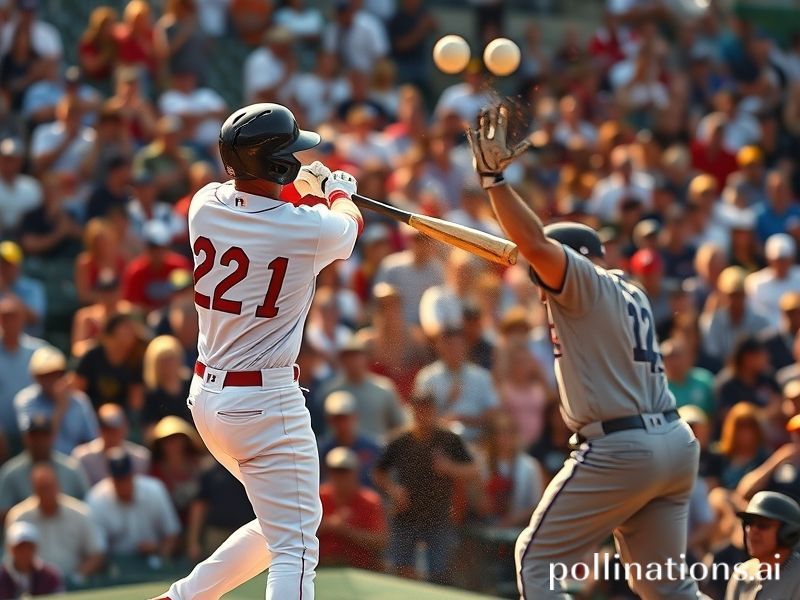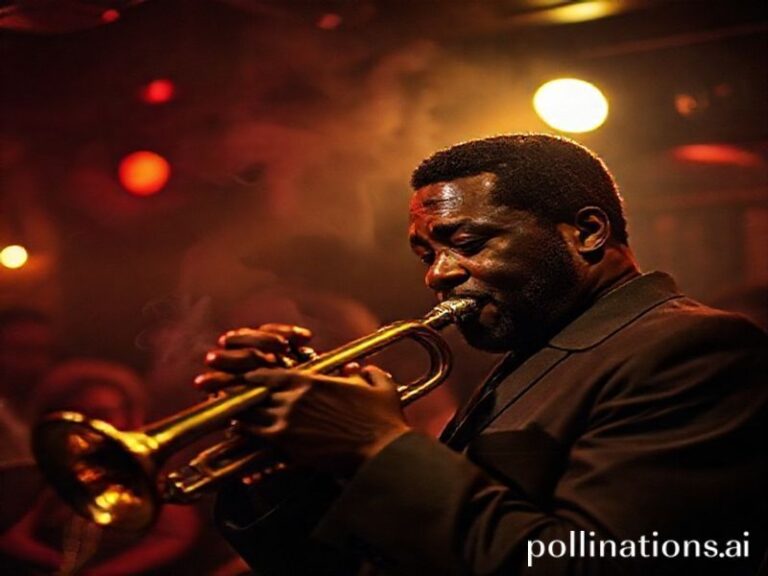Red Sox vs Blue Jays: How a Ballgame Became a Global Trade War in Cleats
The Fenway Flea Market vs. The Rogers Centre Souk
An International Dispatch on Red Sox vs. Blue Jays, or How Baseball Became a Metaphor for Late-Stage Everything
By the time the first pitch left Brayan Bello’s hand in Toronto on Tuesday night, traders in Singapore were already pricing aluminum futures off the over/under on Vladimir Guerrero Jr.’s exit velocity. Meanwhile, in a windowless room in Geneva, a junior diplomat asked—only half in jest—whether the outcome of Red Sox vs. Blue Jays might nudge the Canadian dollar enough to recalibrate maple-syrup subsidies for the year. The game, like every other ostensibly local pastime, has become another node in the planetary Rube Goldberg machine we politely call “globalization.”
Boston enters the series 6½ games behind the Yankees, a deficit statistically identical to the gap between U.S. life expectancy and that of the average Swede. The Blue Jays, meanwhile, cling to a wild-card spot the way a hedge-fund intern clings to the last oat-milk cortado at Davos. Both teams are managed by men whose resting heart rates suggest either transcendental calm or terminal resignation; press-box physicians haven’t decided which.
The international stakes, though nominally zero, are somehow everywhere. Fenway Sports Group—the conglomerate that owns Liverpool FC, the Pittsburgh Penguins, and a slice of LeBron—uses Sox games as live A/B tests for crowd-control algorithms later deployed at Anfield. Across the border, Rogers Communications streams every Jays at-bat to 38 countries, harvesting biometric data from viewers who absent-mindedly grip their phones tighter every time Bo Bichette fouls one into the 500 level. Your pulse is now a tradable commodity; welcome to the sportsbook of the self.
Consider the pitching matchup as a soft-power skirmish. Boston sends out a Dominican right-hander who throws 97 mph cut-fastballs that break like a Greek government bond. Toronto counters with a Canadian-born lefty who grew up idolizing Roy Halladay and now throws a 92 mph sinker that drops faster than crypto during a regulatory hearing. Somewhere in Caracas, a kid streaming on 240p decides which flag to paint on his bedroom wall based on tonight’s strikeout-to-walk ratio. Soft power, meet soft tissue damage.
The bats tell an even darker comedy. Guerrero Jr. swings a maple bat harvested from the same Québec forest that supplies the Governor of the Bank of Canada’s desk set. Rafael Devers, on the other hand, favors ash from upstate New York—ash that, climate scientists note, is migrating north at 20 kilometers per decade. In thirty years, the wood may be Canadian anyway; for now, we call it free trade and look the other way.
Ticket prices on the secondary market behave like emerging-market currencies: a grandstand seat at Fenway briefly touched $212 USD, equivalent to 287 loonies or one full Venezuelan minimum-wage month. The transaction was routed through a server in Dublin to avoid Massachusetts sales tax, then anonymized via a Cayman Islands shell company whose only other asset is a minor stake in a Sri Lankan cricket league. Somewhere, Adam Smith weeps into his invisible handkerchief.
Even the concessions have gone geostrategic. Boston’s “Impossible Sausage” is sourced from soy processed in Iowa, packaged in Mexico, and branded with a carbon-footprint label that reassures fans they are saving the planet one $11 sandwich at a time. Toronto answers with poutine topped by cheese curds from a Quebec co-op whose workers just unionized after watching a TikTok of Chris Sale’s slider set to a Celine Dion power ballad. Solidarity, like gravy, is best served hot and over everything.
By the eighth inning, the score is tied, the bullpens are smoking, and a rogue thunderstorm is rolling in off Lake Ontario—climate change auditioning for a closer role. The game will end, inevitably, on a replay review so microscopic that only a supercomputer in Seoul can adjudicate it. Fans in both countries will claim moral victory; the algorithm will merely log another data point toward next quarter’s revenue forecast.
Which is the bleakest punch line of all: no matter who wins this glorified lawn ballet, the true standings are updated in offshore ledgers long before the last high-five. We tune in for tribal catharsis; the system sees only another nightly arbitrage between dopamine and debt. Still, tomorrow we’ll do it again—because hope, unlike the Canadian dollar, refuses to stay down.
And somewhere in neutral waters, a container ship full of officially licensed caps steams toward Jakarta, its manifest listing the final score as “TBD.” The world keeps shipping.







